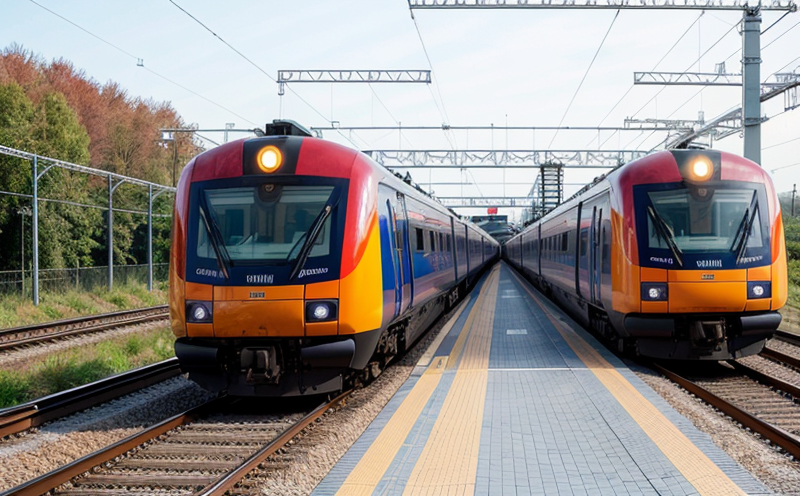EN 301 908 LTE Performance Testing for Smart Rail
The European standard EN 301 908 specifies the technical requirements and test procedures for the performance of wireless communication systems in railway applications. This service focuses on the testing of Long-Term Evolution (LTE) networks, which are integral to modern smart rail systems.
In a smart rail system, LTE technology is used for various purposes including real-time data transmission, maintenance alerts, and passenger information services. The performance of these networks directly affects safety, efficiency, and reliability in railway operations.
The testing process involves several key steps: network setup, parameter configuration, signal generation, and comprehensive evaluation. During this phase, we ensure that the LTE network adheres to international standards such as EN 301 908 and other relevant specifications like IEEE 802.16 for broadband wireless access.
For effective testing, our laboratory utilizes advanced instrumentation capable of simulating real-world conditions. This includes test equipment that can mimic various environmental factors that may affect LTE performance in railway settings. Our team configures the network parameters to reflect actual usage scenarios within a smart rail system.
The signal generation process is crucial as it allows us to assess the robustness and reliability of the LTE network under different conditions. We employ state-of-the-art generators capable of producing signals that simulate both static and dynamic environments. These simulations help identify any potential issues early in the development or deployment phase.
Comprehensive evaluation follows, where we analyze various performance metrics such as signal strength, latency, throughput, and error rates. These metrics are critical for ensuring that the LTE network meets all specified requirements outlined in EN 301 908. Our laboratory provides detailed reports highlighting any discrepancies from standards or expected performance levels.
Our expertise extends beyond mere compliance; we also offer insights into optimization strategies based on our findings during testing. By leveraging this knowledge, railway operators can enhance their smart rail systems, leading to improved operational efficiency and enhanced passenger experiences.
Why It Matters
The importance of EN 301 908 LTE Performance Testing for Smart Rail cannot be overstated. As the backbone of modern smart rail systems, reliable communication networks are essential for ensuring safety and efficiency in railway operations.
- Enhanced Safety: Reliable communication ensures that real-time data can be transmitted accurately, which is vital for emergency response and maintenance alerts.
- Economic Efficiency: Efficient networks reduce downtime by minimizing delays due to signal interference or poor performance.
- Predictive Maintenance: Continuous monitoring through LTE allows for proactive identification of potential issues before they become critical problems.
By adhering to this standard, railway operators not only meet regulatory requirements but also demonstrate their commitment to providing safe and efficient services. This can enhance trust among stakeholders including passengers, regulators, and industry partners.





